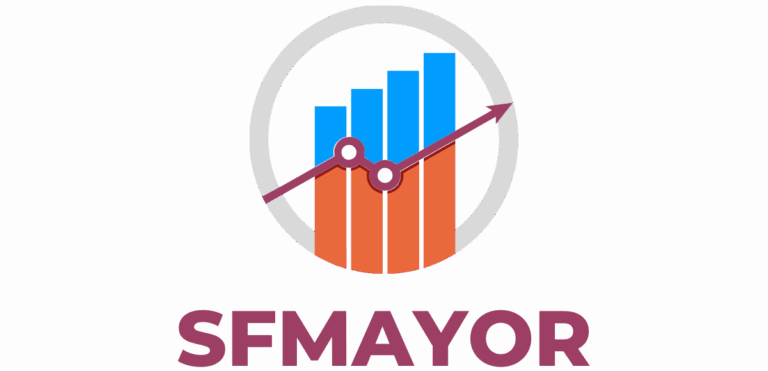In today’s fast-paced world, navigating career paths can feel like trying to find a clean bathroom at a music festival—confusing and a bit overwhelming. Enter the career development coach, the GPS for your professional journey. With their expert guidance, they help individuals unlock their potential, set achievable goals, and avoid the dreaded dead-end job.
Table of Contents
ToggleWhat Is a Career Development Coach?
A career development coach supports individuals in navigating their professional journeys. They focus on enhancing career satisfaction and success.
Role and Responsibilities
A career development coach provides guidance in areas such as goal setting, skill assessment, and career exploration. They create personalized development plans tailored to individual aspirations. Coaches assist clients in identifying strengths and weaknesses. They also offer strategies for overcoming obstacles and increase job satisfaction. Regular feedback helps maximize growth. This ongoing support fosters confidence and accountability in their clients’ journey.
Skills and Qualifications
A career development coach typically possesses a background in psychology, human resources, or coaching certification. Strong interpersonal skills facilitate effective communication and relationship building. Listening skills are crucial for understanding client needs. Analytical abilities enable evaluation of clients’ skills and career options. Additionally, familiarity with job market trends and economic factors supports informed guidance. Coaches often seek continuous professional development to stay current and improve their effectiveness.
Benefits of Hiring a Career Development Coach

Hiring a career development coach offers multiple advantages, particularly tailored support for individual career aspirations.
Personalized Guidance
Personalized guidance stands out as a key benefit. A career development coach creates a unique plan focused on each client’s strengths and weaknesses. They utilize assessments to identify growth opportunities, aligning career paths with individual goals. Engaging in regular one-on-one sessions encourages open communication and deeper understanding of challenges. Coaches offer resources and strategies suited to specific needs, ensuring clients face obstacles head-on. Tailored advice enhances the likelihood of achieving significant milestones, fostering a supportive atmosphere that empowers clients.
Improved Job Satisfaction
Improved job satisfaction emerges as another major advantage of hiring a career development coach. Individuals experience greater clarity about their career goals through structured guidance. Coaches help identify unfulfilling aspects of current roles and suggest actionable steps towards more satisfying careers. Developing new skills often enhances job fulfillment, leading to higher overall productivity. Clients report increased motivation and engagement in their work, which directly correlates with job satisfaction. As individuals work towards fulfilling careers, they often find a renewed sense of purpose and well-being.
How to Choose the Right Career Development Coach
Choosing the right career development coach plays a crucial role in professional growth. Several factors determine the ideal match for an individual seeking guidance.
Credentials to Look For
Look for relevant education in psychology or human resources. Review coaching certifications that demonstrate expertise in career coaching. Verify any specialized training in areas such as resume building, interview techniques, and job market trends. Consider coaches with a track record of successful client outcomes and positive testimonials. Assess experience in the specific industry of interest, as this insight often enhances coaching effectiveness. Explore participation in ongoing professional development, as this indicates a commitment to staying updated on industry changes.
Questions to Ask
Ask about the coach’s approach and methodology in career development. Inquire about the types of assessments utilized to gauge strengths and weaknesses. Discuss the experience with clients in similar situations to ensure relatability. Seek clarity on the duration and frequency of sessions, which can impact the development process. Evaluate how feedback is provided to enhance growth and accountability. Determine the coach’s familiarity with current job market trends, which can significantly influence career strategy.
Common Coaching Techniques Used
Career development coaches employ various techniques to guide clients effectively. They focus on methods that facilitate personal growth and goal achievement.
Goal Setting
Establishing clear goals remains crucial in career development coaching. Coaches assist clients in defining specific, measurable, achievable, relevant, and time-bound (SMART) goals. During sessions, they encourage reflection on aspirations and values. This process helps clients understand what they desire in their careers. Over time, breaking down larger goals into smaller steps creates a manageable action plan. Clients often experience increased motivation as they track their progress. Achieving milestones fosters a sense of accomplishment and encourages further growth.
Skill Assessment
Evaluating skills serves as a key technique in coaching sessions. Coaches guide clients in identifying their existing strengths and areas for improvement. Assessments may include formal tools, self-reflections, or feedback from peers. After this evaluation, tailored development plans arise, focusing on enhancing key competencies. Clients engage in activities or training to address skill gaps. With regular check-ins, coaches ensure clients remain on track and adjust strategies as needed. This ongoing assessment not only boosts skill proficiency but also instills confidence in clients’ abilities within the workplace.
Engaging with a career development coach can transform an individual’s professional journey. By providing tailored support and personalized strategies, these coaches empower clients to navigate their career paths with confidence. The structured guidance helps individuals identify their strengths and weaknesses while fostering accountability and growth.
As job markets continue to evolve, having a knowledgeable coach can make all the difference in achieving career satisfaction and success. Their expertise not only enhances skill development but also helps clarify career aspirations, leading to a more fulfilling work life. Investing in a career development coach is a proactive step toward realizing one’s potential and achieving meaningful milestones in the ever-changing world of work.




